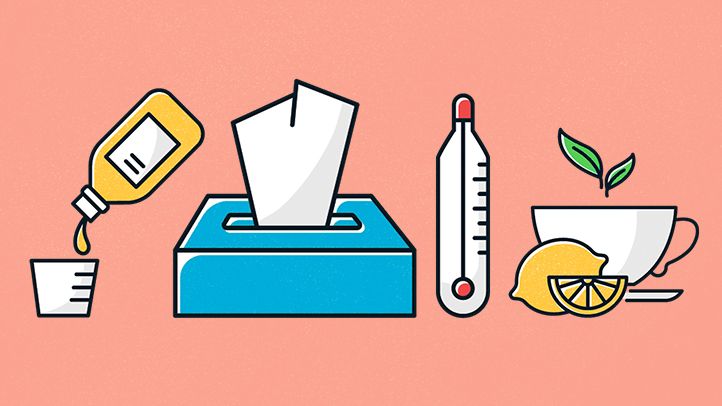Understanding Nasal Polyps
Nasal polyps are noncancerous growths that develop in the lining of the sinuses or nasal passages. They typically appear as teardrop-shaped swellings that hang down from the sinus passages into the nasal cavity.
Nasal polyps often occur in people with chronic inflammation conditions like asthma, cystic fibrosis, and chronic sinusitis. They may affect adults and children, but are more common in middle-aged and older adults.
The exact cause of nasal polyps is unknown, but they tend to form in people with chronic inflammation. This inflammation causes fluid to accumulate in the sinuses and nasal tissues, resulting in edema or swelling. Over time, the swollen tissue can form into polyps.
Common symptoms of nasal polyps include:
- Chronic congestion or stuffiness
- Runny nose
- Postnasal drip
- Loss of smell and taste
- Facial pain or pressure
- Snoring
- Difficulty breathing through the nose
If left untreated, nasal polyps can completely block the nasal passages and sinuses, causing even more severe symptoms.
Medical Treatments for Nasal Polyps
The most common medical treatments for nasal polyps include:
Nasal Steroid Sprays
Corticosteroid nasal sprays are the first line treatment for nasal polyps. The steroids work by reducing inflammation, which helps shrink polyps over time. They may take several weeks to start working but can significantly open nasal passages once effective.
Some common prescription steroid sprays include fluticasone (Flonase), triamcinolone (Nasacort), mometasone (Nasonex), and budesonide (Rhinocort). Using nasal saline spray along with steroids may help enhance results.
Oral Steroids
Oral corticosteroids like prednisone are sometimes prescribed for short-term treatment of severe nasal polyps. A course of oral steroids, such as prednisone, taken for 1-2 weeks can rapidly shrink polyps and open nasal passages.
However, oral steroids can have significant side effects with long-term use, including weak bones, weight gain, and high blood pressure. Therefore, an oral steroid burst is only used for severe blockage until other treatments start working.
Biologics
Biologic drugs that inhibit specific parts of the inflammatory response are emerging as new therapy options for chronic nasal polyps. Currently, the anti-IgE antibody omalizumab (Xolair) and anti-IL5 antibodies mepolizumab (Nucala) and reslizumab (Cinqair) have been studied in patients with nasal polyps.
These biologic agents target different inflammatory proteins involved in certain disease pathways. Early research indicates they may be beneficial in reducing nasal polyp size and recurrence after surgery in select patients.
Biologics are given by injection or IV infusion. Potential side effects may include increased infection risk, fever, headache, and injection site reaction. More research is still needed to confirm long-term efficacy and safety.
Other Medications
Oral steroids and nasal steroid sprays are the mainstays of medical treatment for nasal polyps. Some other medications that may be helpful include:
- Antihistamines - Help reduce sneezing and runny nose symptoms.
- Decongestants - Temporarily open nasal passages.
- Nasal anticholinergics - Block specific receptors to reduce nasal leakage and congestion.
- Leukotriene inhibitors - Reduce inflammation by blocking leukotrienes.
Discuss all medications with your doctor, as improper or overuse of decongestants and antihistamines can actually worsen congestion.
Nasal Polyp Surgery
If medications are not effective at shrinking nasal polyps, surgery may be recommended. There are several different nasal polyp surgery techniques:
Polypectomy
Polypectomy is a procedure to directly remove nasal polyps. It is often done using small surgical instruments with the patient under local or general anesthesia.
This procedure removes accessible polyps but has a high recurrence rate since it does not treat the underlying inflammation that causes them to regrow.
Functional Endoscopic Sinus Surgery (FESS)
FESS is the most common and effective surgery for nasal polyps. It uses an endoscope (small camera) inserted into the nostril to visualize the nasal passages and sinuses.
The surgeon then carefully removes polyps as well as small bone and tissue fragments to widely open the sinus drainage pathways. This both removes current polyps and improves long term drainage to reduce recurrence.
FESS is done under general anesthesia as an outpatient procedure. Patients normally recover in 1-2 weeks.
Balloon Sinuplasty
Balloon sinuplasty uses a small inflated balloon to gently remodel the sinus opening instead of removing tissue. This minimally invasive option may be used alone or with polyp removal and other techniques.
It can help improve drainage but does not remove polyps. Balloon sinuplasty has a quicker recovery than FESS but a higher recurrence risk.
Home Remedies and Lifestyle Changes
Medical therapy and surgery are the most proven options for treating nasal polyps. However, certain at-home treatments and lifestyle changes may help provide additional symptom relief:
- Use nasal saline rinses to help clear mucus and soothe inflammation.
- Take over-the-counter medications like antihistamines, decongestants, and nasal steroids.
- Avoid irritants like cigarette smoke, chemicals, and air pollutants.
- Use a humidifier to add moisture to overly dry indoor air.
- Drink plenty of fluids to thin mucus.
- Get regular gentle exercise to support the immune system.
- Consider antioxidants and herbal supplements (discuss with your doctor first).
Avoid overusing decongestant nasal sprays, as this can increase congestion. See your doctor if at-home treatments are not relieving symptoms.
Outlook for Nasal Polyps
Nasal polyps are common noncancerous growths affecting the nasal passages and sinuses. They frequently recur after treatment but rarely become cancerous.
With proper continuing treatment, most people with nasal polyps can achieve good symptom control and quality of life. The combination of nasal steroid sprays, biologics, surgery, and lifestyle changes offers effective long-term management for chronic nasal polyps.
Work closely with your ENT doctor to determine the right treatment plan for your individual case. Report any new or worsening symptoms promptly, as early treatment leads to better outcomes.
Though challenging to manage, nasal polyps can often be reduced to minimize disruptive symptoms using todays advancing treatment options.
FAQs
What are biologics?
Biologics are medications made from living organisms that target specific parts of the immune system inflammation pathway. They are used to treat certain inflammatory or autoimmune conditions.
How do biologics help treat nasal polyps?
Two biologics, omalizumab and mepolizumab, have been studied for treating nasal polyps. They block inflammatory proteins like IgE or IL-5 to reduce chronic sinus inflammation and shrink nasal polyps.
How are biologic drugs administered?
Biologics for nasal polyps are given by injection or intravenous (IV) infusion. The frequency depends on the drug but is usually every 2-4 weeks.
What are the potential side effects of biologics?
Biologics affect the immune system and may increase the risk of infections or reactions. Other possible side effects include headache, fever, and injection site reactions.
Are biologics better than steroids for nasal polyps?
More research is still needed. Biologics appear beneficial for some patients with severe chronic nasal polyps. They are typically used in combination with, not instead of, nasal steroid sprays.
Disclaimer: This article is for informational purposes only and does not constitute medical advice. Always consult with a healthcare professional before starting any new treatment regimen.
Related Coverage
Skipping meals can trigger headache pain in some people due to resulting low blood sugar, dehydration, and other effects. Learn strategies to prevent and treat hunger headaches....
Get the facts on Beovu side effects, including common, mild, and serious reactions. Stay informed for safer treatment....
Discover the safety and benefits of la bella spray tans, a revolutionary tanning method that delivers a natural-looking glow without the risks associated with UV exposure....
COPD medication side effects, lung hyperinflation, low potassium, weight gain, and ascites may cause abdominal swelling. Tests determine causes and proper treatment....
Mozzarella sticks make for perfect high fat, grab-and-go keto snacks. This easy breaded cheese stick recipe fits the ketogenic diet with negligible carbs....
Research shows fiberglass in mattresses can cause skin, lung and eye damage. Lawsuits target Vibe mattress fiberglass risks. Safer mattress materials exist....
Oxy's affordable vitamin C serum utilizes 15% pure ascorbic acid and botanical extracts to brighten skin tone, improve texture, protect from environmental damage, and reveal a healthy, youthful glow....
Explore the lactose content in buffalo milk and its suitability for individuals with lactose intolerance. Discover alternatives and tips for managing lactose intolerance....
Want to use body oils like coconut or almond oil on your face? Learn which facial skin types can use body oils, top oil options, usage tips, and safety precautions....
Do you have a perpetually frozen nose? Genetic factors, poor circulation, inflammation, or lifestyle habits may impair your nose's ability to warm itself. Try heat, massage, humidifying....









